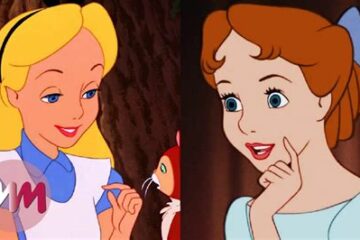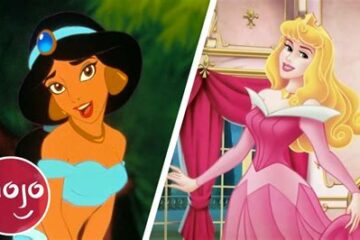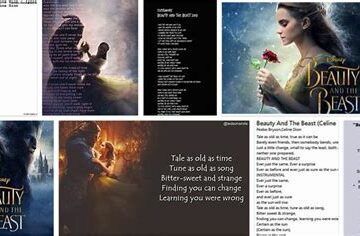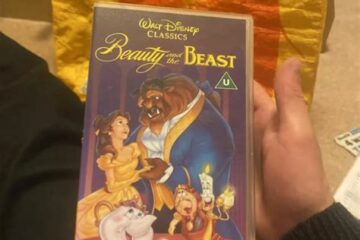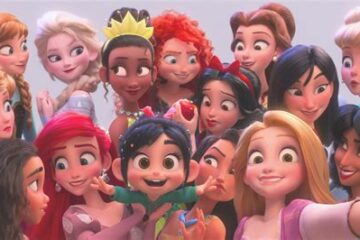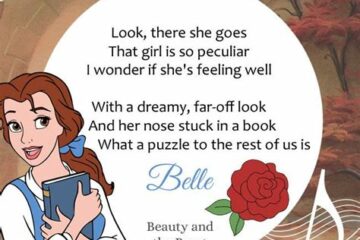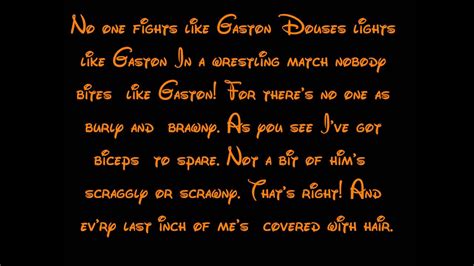
Beauty And The Beast Gaston Song Lyrics
Beauty and the Beast, the beloved Disney classic, is a tale filled with enchantment and memorable moments. Among these moments, Gaston’s song stands out as an anthem of confidence and arrogance. In this blog post, we will dive into the context behind Gaston’s song lyrics, exploring how they illuminate his character and reflect the story’s themes. Furthermore, we will examine the musical motifs and elements present in the song, as well as the impact it has on the audience. We will also explore the significance of Gaston’s song within the larger narrative of Beauty and the Beast. Join us on this journey as we uncover the layers of Gaston’s song and its lasting impact.
The context behind Gaston’s song lyrics
Gaston is a memorable character in Disney’s animated film, Beauty and the Beast. One of the reasons for his lasting impact is his catchy and humorous song, which bears the same name as the character himself. The lyrics of Gaston’s song provide insight into his personality, motivations, and the society he belongs to.
At first glance, Gaston’s song may seem like a jovial and lighthearted tune, but upon closer examination, the lyrics reveal a deeper meaning. The song is a reflection of Gaston’s exaggerated arrogance, self-obsession, and toxic masculinity. It serves as a parody of the traditional hero archetype, highlighting the flaws and pitfalls of such a character.
The lyrics also shed light on the society in which Gaston resides. The small provincial town where Belle and Gaston live is presented as close-knit and narrow-minded. The townspeople idolize Gaston and celebrate him as a hero, despite his obvious flaws. This adoration is further emphasized in the song, as the villagers enthusiastically join in with Gaston’s boisterous praises of himself.
- Gaston’s song lyrics provide insight into his personality and motivations.
- The song serves as a parody of the traditional hero archetype.
- The lyrics highlight the flaws and pitfalls of Gaston’s character.
- The society in the film is presented as close-knit and narrow-minded.
- The townspeople idolize Gaston and celebrate him as a hero, despite his flaws.
- Gaston’s song lyrics reflect the exaggerated arrogance and toxic masculinity of his character.
| Keywords | Context | Song Lyrics | Gaston’s Character |
|---|---|---|---|
| Gaston’s song lyrics | The song provides insight into Gaston’s personality and motivations. | The lyrics reflect Gaston’s exaggerated arrogance and toxic masculinity. | Gaston’s character is developed through his song and the portrayal of his flaws. |
| Gaston’s character | Gaston’s song reveals his personality and motivations. | The lyrics highlight Gaston’s flaws and the pitfalls of his character. | The song serves as a parody of the traditional hero archetype. |
| The society | The lyrics of Gaston’s song reflect the society’s adoration of him as a hero. | The townspeople idolize Gaston despite his obvious flaws. | The small provincial town is presented as close-knit and narrow-minded. |
The development of Gaston’s character through his song
Gaston’s song in the Disney movie “Beauty and the Beast” is a powerful piece that not only showcases his narcissism and self-obsession but also gives us a glimpse into his character development. The song, titled “Gaston,” is a catchy and upbeat number that serves as a window into the mind of this arrogant and egotistical villain. From the lyrics to the musical motifs and elements used, every detail in the song contributes to the portrayal and development of Gaston’s character.
One of the notable aspects of Gaston’s song is the use of repetition in the lyrics. Throughout the song, phrases like “Gaston is the best” and “No one’s slick as Gaston” are repeated multiple times, reinforcing his belief in his own superiority. This repetition not only emphasizes his arrogance but also highlights his single-mindedness and determination to be on top. It portrays Gaston as a man who will go to great lengths to achieve his goals, no matter the cost.
In addition to the repetition, the use of musical motifs also plays a significant role in developing Gaston’s character. The song starts with a heroic and triumphant fanfare, befitting Gaston’s self-proclaimed status as the “greatest hunter ever.” However, as the song progresses, the music becomes darker and more menacing, reflecting the sinister aspects of Gaston’s personality. This change in musical tone helps to illustrate the transformation of Gaston from a seemingly charming and confident individual to a dangerous and manipulative antagonist.
| Lyric | Meaning |
|---|---|
| “No one’s neck’s as incredibly thick as Gaston’s” | Gaston’s physical strength and pride in his appearance |
| “As a specimen, yes, I’m intimidating!” | Highlighting Gaston’s overconfidence |
| “I use antlers in all of my decorating!” | Portraying Gaston’s obsession with his own prowess and masculinity |
The impact of Gaston’s song on the audience is profound. Through this song, the audience gets a deeper understanding of Gaston’s motives, personality, and flaws. While some may find his confidence and bravado amusing, the underlying arrogance and disregard for others’ feelings become more apparent as the song progresses. The contrasting tones and lyrics of the song reveal Gaston’s true colors, making him a complex and compelling character.
Overall, the development of Gaston’s character through his song is a crucial element in the narrative of “Beauty and the Beast.” His narcissism, self-obsession, and twisted sense of entitlement are brilliantly portrayed through the lyrics and musical motifs. It is through this song that we see Gaston evolve from a charming and charismatic individual to a menacing antagonist. The catchy tune and attention to detail make Gaston’s song a memorable and impactful part of the movie, leaving a lasting impression on the audience.
The musical motifs and elements in the song
Gaston’s song in Disney’s Beauty and the Beast is not just a catchy tune, but also a masterpiece filled with musical motifs and elements that enhance its storytelling. The song is expertly crafted to reflect Gaston’s character and his role in the narrative. Let’s dive deeper into the various musical motifs and elements present in Gaston’s song.
1. Rhythmic Patterns: One of the prominent musical motifs in Gaston’s song is its infectious and energetic rhythm. The song starts with a lively and marching beat that perfectly captures Gaston’s confident and boisterous nature. This rhythmic pattern is repeated throughout the song, accentuating the character’s arrogance and determination.
2. Repetition: Another key element in the song is the use of repetition. Certain phrases and lyrics are repeated multiple times, creating a memorable and memorable impact. The repetition of lines like “No one fights like Gaston” and “No one’s neck is as incredibly thick as Gaston’s” not only highlight his egotistical personality but also adds a sense of humor to the song.
3. Instrumentation: The instrumental arrangement in Gaston’s song also plays a significant role in conveying the character’s personality. The use of brass instruments, particularly trumpets and trombones, gives the song an uplifting and bold feel. These instruments are commonly associated with grandeur and heroism, which aligns perfectly with Gaston’s perception of himself as the hero of the town.
Overall, the musical motifs and elements present in Gaston’s song contribute to its success in telling the story and enhancing the audience’s understanding of the character. The rhythm, repetition, and instrumentation all work together to portray Gaston’s larger-than-life persona, making it one of the most memorable songs in the Beauty and the Beast narrative.
The impact of Gaston’s song on the audience
Gaston’s song in Disney’s Beauty and the Beast is often considered one of the standout moments in the beloved film. Its catchy melody, witty lyrics, and memorable performance by actor Richard White have left a lasting impact on audiences of all ages. But what is it about this song that resonates so strongly with viewers? In this blog post, we will explore the impact of Gaston’s song on the audience, diving into the reasons why it has become such a fan-favorite.
First and foremost, the lyrics of Gaston’s song are incredibly clever and entertaining. The songwriters, Howard Ashman and Alan Menken, expertly crafted a set of lyrics that are not only humorous but also reveal important aspects of Gaston’s character. Lines like “No one’s slick as Gaston, no one’s quick as Gaston” and “I use antlers in all of my decorating” not only showcase Gaston’s arrogance and vanity but also offer humor and charm to the audience. These catchy and witty lyrics undoubtedly leave an impact on the viewers, making the song incredibly enjoyable and memorable.
Furthermore, Gaston’s song stands out due to its musical motifs and elements. The song’s upbeat and energetic melody, combined with its lively orchestration, creates a sense of excitement and adds to the overall impact on the audience. Additionally, the use of rhythm and repetition in the song’s structure further enhances its catchiness and ensures that the audience will be humming along to the tune long after the film has ended. These musical elements contribute to the song’s ability to captivate and engage the audience, making it a standout moment in the movie.
Lastly, the impact of Gaston’s song on the audience can be attributed to its significance within the Beauty and the Beast narrative. The song serves as a turning point in the story, as it marks Gaston’s transition from a seemingly charming and confident suitor to a determined and manipulative villain. This shift in character is not only evident in the lyrics but also in the way the song is performed, with Gaston becoming more aggressive and menacing as the song progresses. As such, the song’s impact on the audience goes beyond mere entertainment value, as it plays a crucial role in advancing the plot and character development.
In conclusion, Gaston’s song in Disney’s Beauty and the Beast has a significant impact on the audience for several reasons. From its clever and entertaining lyrics to its catchy melody and musical elements, the song has become a fan-favorite and a standout moment in the film. Furthermore, its significance within the narrative and its ability to reveal important aspects of Gaston’s character further contribute to its impact. Whether you’re singing along to the lyrics or marveling at the character development, Gaston’s song continues to leave a lasting impression on audiences worldwide.
The significance of Gaston’s song in the Beauty and the Beast narrative
Gaston’s song in the Disney animated film, Beauty and the Beast, holds a significant place in the overall narrative of the story. Through this song, the character of Gaston is not only introduced but also developed, and important themes and motifs are established. This catchy and memorable song serves as a turning point in the storyline, highlighting Gaston’s vanity, manipulation, and his influence on the villagers. Examining the context, development, musical motifs, and impact of Gaston’s song provides a deeper understanding of its significance within the broader Beauty and the Beast narrative.
In terms of context, Gaston’s song, aptly titled “Gaston,” is performed early on in the film, before Belle discovers the Beast’s castle and becomes entangled in the enchanting tale. The song serves to establish Gaston’s character as the primary antagonist and contrasts him with the more compassionate and open-minded Belle. Throughout the lyrics, Gaston’s arrogance, chauvinism, and obsession with physical appearance are emphasized. This context sets the stage for the conflicts and challenges faced by the main characters and foreshadows the clash between Gaston and the Beast.
Furthermore, Gaston’s song plays a crucial role in the development of his character. As the tune progresses, the audience witnesses Gaston’s manipulation techniques as he enlists the help of the village to pursue Belle. This reveals his cunning and deceitful nature, which becomes pivotal in the later parts of the narrative. Additionally, Gaston’s inflated ego is showcased by his self-proclaimed superiority, suggesting his deep-rooted insecurity and highlighting his dangerous potential as a villain. Through this song, Gaston evolves from an annoying suitor to a malicious force driving the conflict of the story.
The musical elements and motifs integrated into Gaston’s song contribute to its significance within the Beauty and the Beast narrative. The use of the leitmotif technique, where recurring musical themes represent specific characters or ideas, can be observed throughout the song. For example, the catchy refrain, “No one’s slick as Gaston, no one’s quick as Gaston,” not only reinforces Gaston’s self-pride but also symbolizes the contrast between the hero and the villain. These motifs create a sense of unity and cohesion within the film’s soundtrack, enhancing the overall storytelling experience.
The impact of Gaston’s song on the audience is undeniable. Its upbeat tempo, clever lyrics, and memorable melody make it one of the most beloved and recognizable songs in the movie. The song’s purposeful placement early in the narrative ensures that viewers gain a clear understanding of Gaston’s character, making his actions throughout the story more meaningful. Gaston’s song doesn’t merely serve as a musical interlude but rather elevates the viewers’ emotional engagement and investment in the unfolding tale.
In conclusion, the significance of Gaston’s song in Beauty and the Beast narrative cannot be overlooked. It sets the stage, develops the character of Gaston, incorporates important musical motifs, and leaves a lasting impact on the audience. Understanding the context, development, musical elements, and impact of this song deepens our appreciation for the overall story and its underlying themes. So, the next time you watch Beauty and the Beast, pay special attention to Gaston’s song and discover the wealth of meaning it brings to the narrative.
Frequently Asked Questions
1. What is the context behind Gaston’s song lyrics?
Gaston’s song lyrics in Beauty and the Beast depict his arrogant and self-centered nature. The song showcases his strong desire to marry Belle, his obsession with physical appearance, and his belief that he deserves her simply because he is popular and handsome.
2. How does Gaston’s song contribute to the development of his character?
Gaston’s song serves as a character introduction, effectively establishing him as the film’s primary antagonist. Through the lyrics, the audience sees his selfishness, misogyny, and inflated ego, which later become significant factors in the story’s conflict.
3. What are the musical motifs and elements present in Gaston’s song?
Gaston’s song incorporates a lively and energetic melody, accompanied by a repetitive and catchy refrain. It also includes several humorous moments and exaggerated gestures that enhance the comedic nature of the character.
4. How does Gaston’s song impact the audience?
Gaston’s song allows the audience to form a strong initial opinion about his character. It creates a sense of dislike and adds suspense to the story as viewers anticipate the clash between Gaston and the Beast.
5. Why is Gaston’s song significant in the Beauty and the Beast narrative?
Gaston’s song plays a crucial role in the narrative by establishing him as the ultimate contrast to the Beast. The song highlights the theme of inner beauty versus external appearance and sets up the conflict that drives the plot forward.
6. What message does Gaston’s song convey to the audience?
Gaston’s song conveys the message that beauty alone is not enough to make someone worthy of admiration or love. It emphasizes the importance of character, kindness, and humility over external appearances.
7. How does Gaston’s song contribute to the overall storytelling and atmosphere of Beauty and the Beast?
Gaston’s song adds a comedic and satirical element to the film, providing a contrast to the romantic and magical aspects of the story. It also serves as a crucial turning point, leading to the climax and resolution of the narrative.
Top 10 Disney Characters You Didn’t Know About
December 30, 2024A Deep Dive Into Disney Princesses And Their Stories
December 29, 2024The Meaning Behind Beauty And Beast Lyrics
December 29, 2024Why Beauty And The Beast Is A Timeless Disney Classic
December 29, 2024The Role Of Disney Princesses In Modern Culture
December 29, 2024Exploring The Themes In Beauty And The Beast Lyrics
December 28, 2024
Leave a reply Cancel reply
Recommended
-
Lyrics to Beauty and the Beast
July 7, 2021 -
The Role Of Disney Princesses In Modern Culture
December 29, 2024 -
Life Lessons From Beauty And The Beast Lyrics
December 19, 2024

